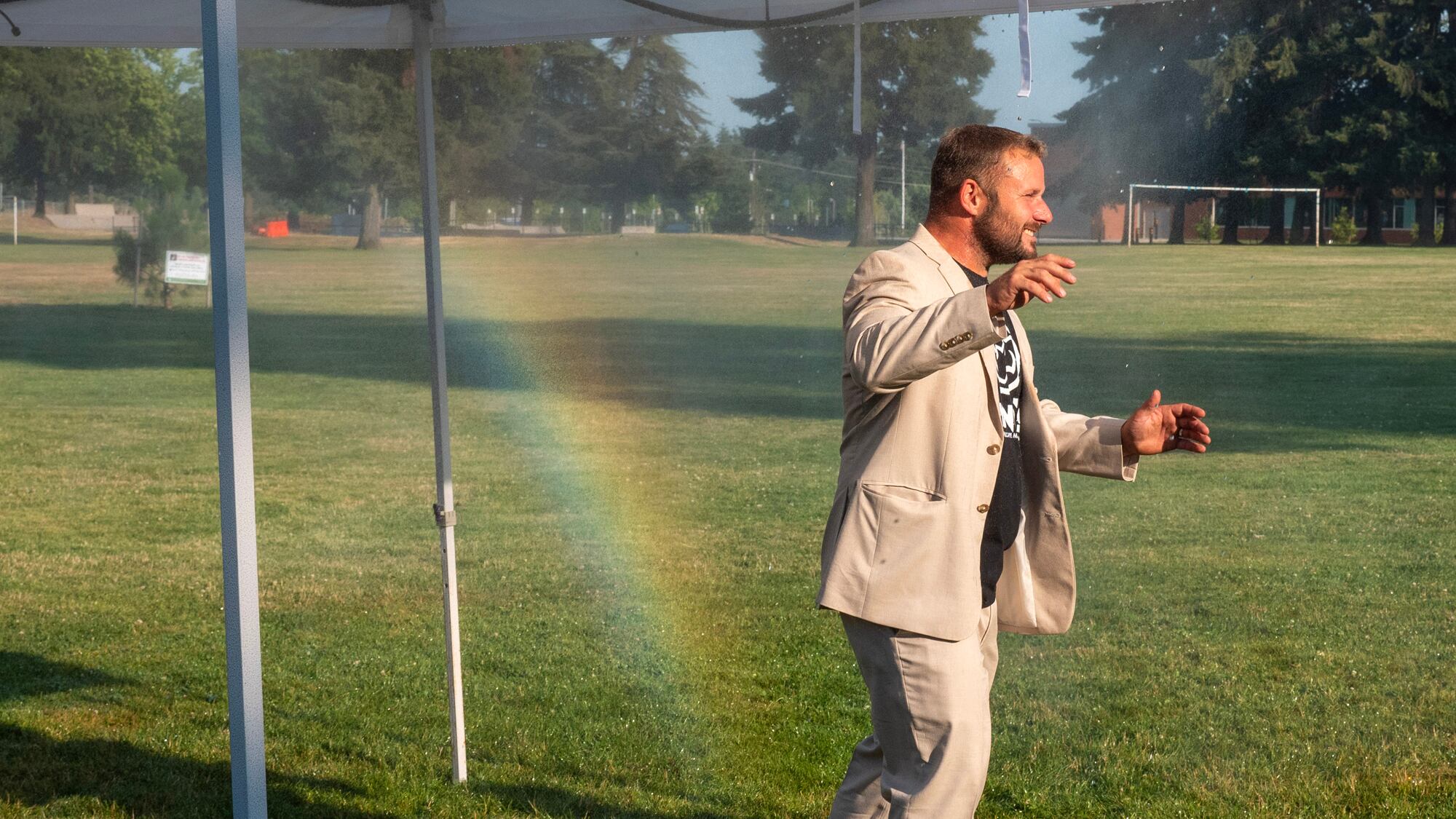In a press conference Friday afternoon, city of Portland and Multnomah County officials said the deadliest part of this week’s heat wave begins now. That’s because Portland is now in the sixth day of a heat wave, and even higher temperatures are expected over the next couple of nights.
The Multnomah County Health Department has identified three suspected heat-related deaths so far this week.
When asked if any details could be shared about the circumstances of those deaths, county officials said they had “scant” details from the medical examiner’s office and didn’t know the deceased’s age, housing circumstances or location.
During last year’s heat dome in late June and into July, 69 Portlanders died from the heat. The majority of them were older and lived alone in non-air conditioned units, with most dying in East Portland in areas with little tree coverage, tall architecture and wide, paved streets—landscapes known as “heat islands.”
Mayor Ted Wheeler appeared on the Friday afternoon call remotely. (He’s vacationing out of town.)
He made a number of contradictory statements about whose responsibility it was to take better care of vulnerable Portlanders.
Wheeler said that the government must consider creating regulations for housing providers to deal with extreme heat, like requiring that residences remain below certain temperatures during heat spells. WW asked the mayor if his administration had created any requirements for city-sponsored housing developers and managers—like the city’s housing authority, Home Forward, in whose buildings six of the 69 Portlanders who died during last year’s heat dome perished—since last year’s heat dome.
Wheeler replied that the commission form of government makes it hard for him to implement such rules.
“As you know, under the commission form of government, I’m not the housing commissioner, I’m not the liaison for the Joint Office of Homeless Services, so I’m just going to speak my mind as a citizen,” Wheeler said. “Back in the day, when I was a younger individual, if you said you had to put requirements around making sure there were cooling requirements in a building, people would’ve laughed at you.”
Three weeks ago, Wheeler told WW that he had overcome the challenges of the commission form of government by making emergency declarations, which gives him authority over bureaus he’s not assigned. Today, WW asked him why he couldn’t do that now.
“That’s actually a real good thought,” Wheeler said. “This is the kind of thing that hasn’t evolved over weeks or months, this is a situation that’s changed day by day.”
He referenced the backlog of air conditioning units funded by taxpayer dollars that only began getting rapidly installed well into this week, and said that, in hindsight, “There’s a lot of guys in white pickup trucks out there. If we just said, ‘Hey, can you come grab two or three units and would you be able to deliver it to someone vulnerable in our community?’ I think a lot of people would’ve said, ‘Yeah, I’ll take time to do that on my way home.’”
“We have to think about this more broadly than just narrowly as a government issue,” Wheeler said. “We have to think about this as a community issue.”
Wheeler added that “we’d be negligent not to” look at further regulations moving forward.
WW asked if it was negligent, then, not to look at new regulations after last year’s heat wave, since Wheeler himself said extreme heat in Portland is a pattern now and should be expected by government officials.
“Yeah, personally I think it was a significant oversight,” Wheeler said, but he followed with: “I think there’s always this knee jerk reaction of ‘What’s the government response going to be?’ during a crisis situation, and too often we leave out people in the community who really want to do something.”
County Chair Deborah Kafoury asked that housing providers and landlords check on residents, provide cool community spaces, and help residents access free rides to cooling shelters set up across the city. The county is continuously sending out text alerts to residents in heat islands and buildings without AC.
“Housing providers, we need you to take this guidance seriously,” Kafoury said.
To find the locations of cooling shelters, check here.
Correction: A previous version of this article said that 10 of those who died lived in Home Forward buildings. In fact, six of those who died did, as WW had previously reported. WW regrets the error.

